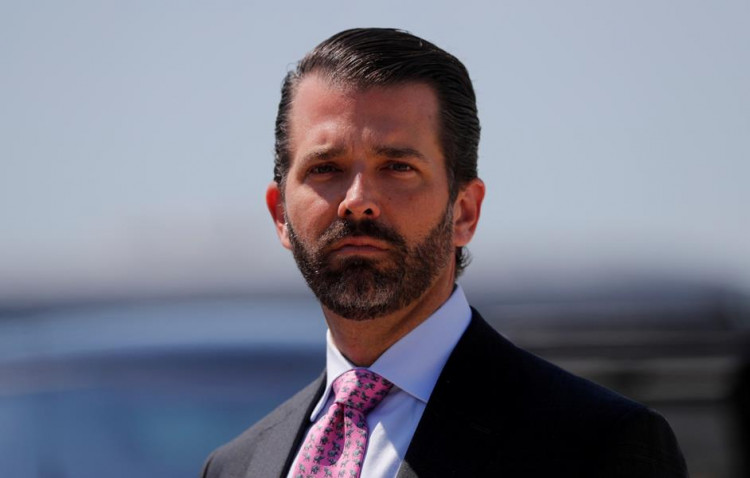Donald Trump Jr. has accused the Biden administration of attempting to escalate the conflict between Russia and Ukraine into a potential "World War III" before President-elect Donald Trump takes office in January.
The accusations follow President Joe Biden's decision to authorize the use of U.S.-supplied long-range Army Tactical Missile Systems (ATACMS) by Ukraine to strike targets within Russian territory. Trump Jr. took to X, formerly Twitter, alleging, "The Military Industrial Complex seems to want to make sure they get World War 3 going before my father has a chance to create peace and save lives."
The Biden administration's move marks a significant shift in U.S. policy, previously focused on de-escalation. The authorization for Ukraine's use of long-range missiles comes amid heightened tensions, with Ukraine planning to deploy these weapons in the Kursk region, near the northeast border. Ukrainian President Volodymyr Zelensky has expressed gratitude for the support, stating that the "missiles will speak for themselves."
Biden's decision, which comes as he prepares to leave office, has drawn criticism from numerous quarters, including prominent Trump supporters and allies. Tech entrepreneur David Sacks, a major donor to Trump's campaign, voiced concerns about the timing and implications of the move. "President Trump won a clear mandate to end the war in Ukraine. So what does Biden do in his final two months in office? Massively escalate it," Sacks remarked, suggesting the move could complicate Trump's efforts to negotiate peace upon assuming the presidency.
Zelensky had been lobbying for months to gain permission to use U.S.-made missiles to strike Russian military targets deeper within its borders, arguing that such strikes could deter Russia's attacks on Ukrainian cities and infrastructure. This change in U.S. policy is viewed by some analysts as a pivotal moment that could shift the balance in the ongoing conflict. Former NATO official Nicholas Williams described the decision as "significant in terms of the end game," emphasizing that it could potentially improve Ukraine's bargaining position.
The involvement of North Korean troops in Russia's campaign has further complicated the geopolitical landscape. Reports indicate that around 10,000 North Korean soldiers have joined Russian forces near the Kursk border, providing Moscow with additional manpower in its effort to regain territory lost to Ukrainian advances earlier this year. U.S. and South Korean intelligence agencies have corroborated the presence of North Korean forces and their role in the conflict. Biden's move is seen by some as a direct response to North Korea's involvement, aiming to "send a message" to Pyongyang.
Trump's approach to the conflict remains distinct from Biden's. The president-elect has pledged to limit U.S. involvement and pursue a diplomatic solution to end the war. Trump's communications director, Steven Cheung, reaffirmed Trump's campaign promise, stating, "As President Trump has said on the campaign trail, he is the only person who can bring both sides together in order to negotiate peace." Trump has already engaged in calls with both Zelensky and Russian President Vladimir Putin to explore potential pathways to end the conflict.
Despite Biden's efforts to support Ukraine's military capabilities, critics warn that escalating the conflict risks broader confrontation. While Zelensky insists that striking targets inside Russia is necessary for Ukraine's defense, skeptics within the U.S. government and NATO remain wary of the long-term consequences. Biden had previously opposed such actions, citing fears of drawing NATO allies directly into the conflict, but the shifting dynamics on the ground appear to have influenced his decision.
Meanwhile, the situation on the ground remains dire. Russian President Vladimir Putin has continued his aggressive military campaign, launching a barrage of missile and drone strikes on Ukrainian cities, including Kyiv. The attacks, which have targeted Ukraine's energy grid and infrastructure, have left parts of the country in darkness and prompted NATO forces in neighboring Poland and Romania to enter a heightened state of readiness.






